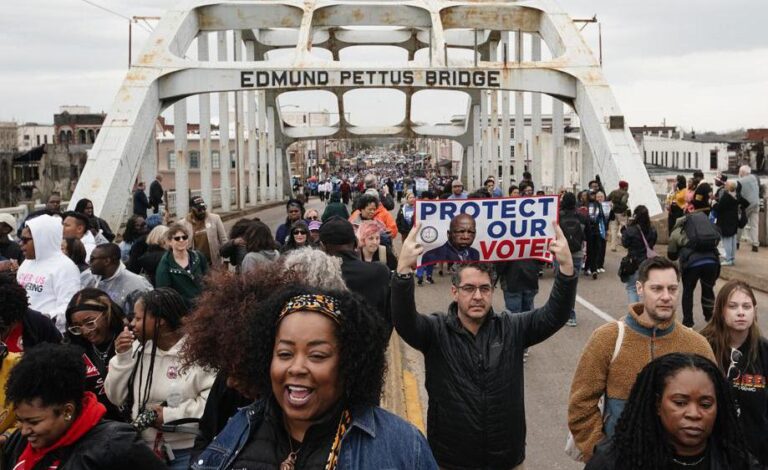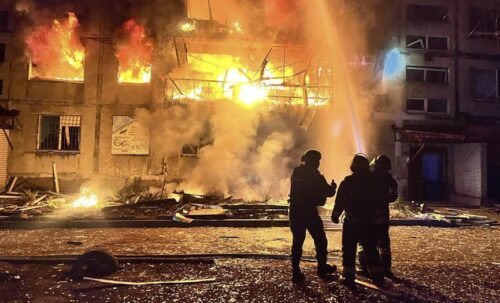SELMA, Ala. — Charles Mauldin was near the front of a line of voting rights marchers walking in pairs across the Edmund Pettus Bridge in Selma, Ala., on March 7, 1965.
The marchers were protesting white officials’ refusal to allow Black Alabamians to register to vote, as well as the killing days earlier of Jimmie Lee Jackson, a minister and voting rights organizer who was shot by a state trooper in nearby Marion.
At the apex of the span over the Alabama River, they saw what awaited them: a line of state troopers, deputies, and men on horseback. They kept going. After they approached, law enforcement gave a two-minute warning to disperse and then unleashed violence.
“Within about a minute or a half, they took their billy clubs, holding it on both ends, began to push us back to back us in, and then they began to beat men, women, and children, and tear gas men, women, and children, and cattle prod men, women, and children viciously,’’ said Mauldin, who was 17 at the time.
Selma on Sunday marked the 60th anniversary of the clash that became known as Bloody Sunday. The attack shocked the nation and galvanized support for the US Voting Rights Act of 1965. The annual commemoration pays homage to those who fought to secure voting rights for Black Americans and brought calls to recommit to the fight for equality.
For those gathered in Selma, the celebration comes amid concerns about new voting restrictions and the Trump administration’s effort to remake federal agencies, which they said helped make America a democracy for all.
Speaking at the pulpit of the city’s historic Tabernacle Baptist Church, House minority leader Hakeem Jeffries said what happened in Selma changed the nation. He said the 60th anniversary comes at a time when there is “trouble all around’’ and some “want to whitewash our history.’’ But he said, like the marchers of Bloody Sunday, they must keep going.
“At this moment, faced with trouble on every side, we’ve got to press on,’’ Jeffries said to the crowd that included the Rev. Jesse Jackson, multiple members of Congress, and others gathered for the commemoration.
Members of Congress joined with Bloody Sunday marchers to lead a march of several thousand people across the Edmund Pettus Bridge. They stopped to pray at the site where marchers were beaten in 1965.
“We gather here on the 60th anniversary of Bloody Sunday when our country is in chaos,’’ said US Representative Terri Sewell of Alabama.
Sewell, a Selma native, noted the number of voting restrictions introduced since the US Supreme Court effectively abolished a key part of the Voting Rights Act that required jurisdictions with a history of racial discrimination to clear new voting laws with the Justice Department. Other speakers noted the Trump administration’s push to end diversity, equity, and inclusion efforts and a rollback of equal opportunity executive orders that have been on the books since the 1960s.
In 1965, the Bloody Sunday marchers led by John Lewis and Hosea Williams walked in pairs across the Selma bridge headed toward Montgomery.
“We had steeled our nerves to a point where we were so determined that we were willing to confront. It was past being courageous. We were determined, and we were indignant,’’ Mauldin recalled.
He said the “country was not a democracy for Black folks’’ until voting rights. “And we’re still constantly fighting to make that a more concrete reality for ourselves.’’

